The final GRAMMY countdown is upon us. The Recording Academy is set to announce nominations in several GRAMMY categories on "The GRAMMY Nominations Concert Live!! — Countdown To Music's Biggest Night," which will take place live for the first time ever in Nashville, Tenn., at Bridgestone Arena on Wednesday, Dec. 5, and will be broadcast in HDTV and 5.1 surround sound on the CBS Television Network from 10 – 11 p.m. ET/PT.
The concert will also feature an eclectic lineup of musical performances, including the Band Perry and Dierks Bentley, Luke Bryan, Fun. and Janelle Monáe, Hunter Hayes, Maroon 5, Ne-Yo, and the Who. Two-time GRAMMY winner LL Cool J and six-time GRAMMY winner Taylor Swift will co-host the one-hour concert special.
As you tune in to the nominations concert, GRAMMY.com will be the destination for an official GRAMMY nominations concert liveblog, where fans will be able to follow all the GRAMMY action and interact with fellow music fans; a nominations concert photo gallery; GRAMMY Live — Backstage At The Nominations Concert, a post-nominations concert live stream featuring interviews and conversation from Nashville; and much more. Additionally, GRAMMY.com will be the first to provide the official 55th GRAMMY nominations list, which will reveal all of the nominees in all 81 GRAMMY categories.
Don't miss a minute of the excitement leading up to Music's Biggest Night. Tune in to "The GRAMMY Nominations Concert Live!! — Countdown To Music's Biggest Night" and join the conversation at GRAMMY.com.
The road to Music's Biggest Night begins with "The GRAMMY Nominations Concert Live!!" and culminates with the 55th Annual GRAMMY Awards, live from Staples Center in Los Angeles on Sunday, Feb. 10, 2013, and broadcast on CBS at 8 p.m. ET/PT.
For updates and breaking news, please visit The Recording Academy's social networks on Twitter and Facebook.
news
"The GRAMMY Nominations Concert Live!!" Set For Dec. 5
GRAMMY nominations concert to feature performances by the Band Perry, Luke Bryan, Maroon 5, Ne-Yo, and more and announce nominations in several GRAMMY categories

Photo: Jeremy Cowart
interview
Behind Ryan Tedder's Hits: Stories From The Studio With OneRepublic, Beyoncé, Taylor Swift & More
As OneRepublic releases their latest album, the group's frontman and pop maverick gives an inside look into some of the biggest songs he's written — from how Beyoncé operates to Tom Cruise's prediction for their 'Top Gun' smash.
Three months after OneRepublic began promoting their sixth album, Artificial Paradise, in February 2022, the band unexpectedly had their biggest release in nearly a decade. The pop-rock band's carefree jam, "I Ain't Worried," soundtracked Top Gun: Maverick's most memeable scene and quickly became a global smash — ultimately delaying album plans in favor of promoting their latest hit.
Two years later, "I Ain't Worried" is one of 16 tracks on Artificial Paradise, which arrived July 12. It's a seamless blend of songs that will resonate with longtime and newer fans alike. From the layered production of "Hurt," to the feel-good vibes of "Serotonin," to the evocative lyrics of "Last Holiday," Artificial Paradise shows that OneRepublic's sound is as dialed-in as it is ever-evolving.
The album also marks the end of an era for OneRepublic, as it's the last in their contract with Interscope Records. But for the group's singer, Ryan Tedder, that means the future is even more exciting than it's been in their entire 15-year career.
"I've never been more motivated to write the best material of my life than this very moment," he asserts. "I'm taking it as a challenge. We've had a lot of fun, and a lot of uplifting records for the last seven or eight years, but I also want to tap back into some deeper material with the band."
As he's been prepping Artificial Paradise with his OneRepublic cohorts, Tedder has also been as busy as he's ever been working with other artists. His career as a songwriter/producer took off almost simultaneously with OneRepublic's 2007 breakthrough, "Apologize" (his first major behind-the-board hit was Leona Lewis' "Bleeding Love"); to this day he's one of the go-to guys for pop's biggest names, from BLACKPINK to Tate McRae.
Tedder sat down with GRAMMY.com to share some of his most prominent memories of OneRepublic's biggest songs, as well as some of the hits he's written with Beyoncé, Adele, Taylor Swift and more.
OneRepublic — "Apologize," 'Dreaming Out Loud' (2007)
I was producing and writing other songs for different artists on Epic and Atlantic — I was just cutting my teeth as a songwriter in L.A. This is like 2004. I was at my lowest mentally and financially. I was completely broke. Creditors chasing me, literally dodging the taxman and getting my car repoed, everything.
I had that song in my back pocket for four years. A buddy of mine just reminded me last month, a songwriter from Nashville — Ashley Gorley, actually. We had a session last month, me, him and Amy Allen, and he brought it up. He was like, "Is it true, the story about 'Apologize'? You were completely broke living in L.A. and Epic Records offered you like 100 grand or something just for the right to record the song on one of their artists?"
And that is true. It was, like, 20 [grand], then 50, then 100. And I was salivating. I was, like, I need this money so bad. And I give so many songs to other people, but with that song, I drew a line in the sand and said, "No one will sing this song but me. I will die with this song."
It was my story, and I just didn't want anyone else to sing it. It was really that simple. It was a song about my past relationships, it was deeply personal. And it was also the song that — I spent two years trying to figure out what my sound was gonna be. I was a solo artist… and I wasn't landing on anything compelling. Then I landed on "Apologize" and a couple of other songs, and I was like, These songs make me think of a band, not solo artist material. So it was the song that led me to the sound of OneRepublic, and it also led me to the idea that I should start a band and not be a solo artist.
We do it every night. I'll never not do it. I've never gotten sick of it once. Every night that we do it, whether I'm in Houston or Hong Kong, I look out at the crowd and look at the band, and I'm like, Wow. This is the song that got us here.
Beyoncé — "Halo," 'I Am…Sacha Fierce' (2008)
We were halfway through promoting Dreaming Out Loud, our first album. I played basketball every day on tour, and I snapped my Achilles. The tour got canceled. The doctor told me not to even write. And I had this one sliver of an afternoon where my wife had to run an errand. And because I'm sadistic and crazy, I texted [songwriter] Evan Bogart, "I got a three-hour window, race over here. Beyoncé called me and asked me to write her a song. I want to do it with you." He had just come off his huge Rihanna No. 1, and we had an Ashley Tisdale single together.
When you write enough songs, not every day do the clouds part and God looks down on you and goes, "Here." But that's what happened on that day. I turn on the keyboard, the first sound that I play is the opening sound of the song. Sounds like angels singing. And we wrote the song pretty quick, as I recall.
I didn't get a response [from Beyoncé after sending "Halo" over], which I've now learned is very, very typical of her. I did Miley Cyrus and Beyoncé "II MOST WANTED" [from COWBOY CARTER] — I didn't know that was coming out 'til five days before it came out. And when I did "XO" [from 2013's Beyoncé], I found out that "XO" was coming out 12 hours before it came out. That's how she operates.
OneRepublic — "Good Life," 'Waking Up' (2009)
["Good Life"] was kind of a Hail Mary. We already knew that "All the Right Moves" would be the first single [from Waking Up]. We knew that "Secrets" was the second single. And in the 11th hour, our engineer at the time — who I ended up signing as a songwriter, Noel Zancanella — had this drum loop that he had made, and he played it for Brent [Kutzle] in our band. Brent said, "You gotta hear this drum loop that Noel made. It's incredible."
He played it for me the next morning, and I was like, "Yo throw some chords to this. I'm writing to this today." They threw some chords down, and the first thing out of my mouth was, [sings] "Oh, this has gotta be the good life."
It's the perfect example of, oftentimes, the chord I've tried to strike with this band with some of our bigger records, [which] is happy sad. Where you feel nostalgic and kind of melancholic, but at the same time, euphoric. That's what those chords and that melody did for me.
I was like, "Hey guys, would it be weird if I made the hook a whistle?" And everyone was like, "No! Do not whistle!" They're like, "Name the last hit song that had a whistle." And the only one I could think of was, like, Scorpion from like, 1988. [Laughs.] So I thought, To hell with it, man, it's been long enough, who cares? Let's try it. And the whistle kind of made the record. It became such a signature thing.
Adele — "Rumour Has It," '21' (2011)
"Rumour Has It" was the first song I did in probably a four year period, with any artist, that wasn't a ballad. All any artist ever wanted me to write with them or for them, was ballads, because of "Halo," and "Apologize" and "Bleeding Love."
I begged [Adele] to do a [song with] tempo, because we did "Turning Tables," another ballad. She was in a feisty mood [that day], so I was like, "Okay, we're doing a tempo today!"
Rick Rubin was originally producing the whole album. I was determined to produce Adele, not just write — because I wanted a shot to show her that I could, and to show myself. I stayed later after she left, and I remember thinking, What can I do in this record in this song that could be so difficult to reproduce that it might land me the gig?
So I intentionally muted the click track, changed the tempo, and [created that] whole piano bridge. I was making it up as I went. When she got in that morning. I said, "I have a crazy idea for a bridge. It's a movie." She listens and she says, "This is really different, I like this! How do we write to this?"
I mean, it was very difficult. [But] we finished the song. She recorded the entire song that day. She recorded the whole song in one take. I've never seen anyone do that in my life — before or since.
Then I didn't hear from her for six months. Because I handed over the files, and Rick Rubin's doing it, so I don't need to check on it. I randomly check on the status of the song — and at this point, if you're a songwriter or producer, you're assuming that they're not keeping the songs. Her manager emails my manager, "Hey, good news — she's keeping both songs they did, and she wants Ryan to finish 'Rumour Has It' production and mix it."
When I finally asked her, months later — probably at the GRAMMYs — I said, "Why didn't [Rick] do it?" She said, "Oh he did. It's that damn bridge! Nobody could figure out what the hell you were doing…It was so problematic that we just gave up on it."
OneRepublic — "Counting Stars," 'Native' (2013)
I was in a Beyoncé camp in the Hamptons writing for the self-titled album. [There were] a bunch of people in the house — me, Greg Kurstin, Sia — it was a fun group of people. I had four days there, and every morning I'd get up an hour and a half before I had to leave, make a coffee, and start prepping for the day. On the third day, I got up, I'm in the basement of this house at like 7 in the morning, and I'm coming up with ideas. I stumble across that chord progression, the guitar and the melody. It was instant shivers up my spine.
"Lately I've been losing sleep, dreaming about the things that we could be" is the only line that I had. [My] first thought was, I should play this for Beyoncé, and then I'm listening to it and going, This is not Beyoncé, not even remotely. It'd be a waste. So I tabled it, and I texted the guys in my band, "Hey, I think I have a potentially really big record. I'm going to finish it when I get back to Denver."
I got back the next week, started recording it, did four or five versions of the chorus, bouncing all the versions off my wife, and then eventually landed it. And when I played it for the band, they were like, "This is our favorite song."
Taylor Swift — "Welcome to New York," '1989' (2014)
It was my second session with Taylor. The first one was [1989's] "I Know Places," and she sent me a voice memo. I was looking for a house in Venice [California], because we were spending so much time in L.A. So that whole memory is attached to me migrating back to Los Angeles.
But I knew what she was talking about, because I lived in New York, and I remember the feeling — endless possibilities, all the different people and races and sexes and loves. That was her New York chapter. She was so excited to be there. If you never lived there, and especially if you get there and you've got a little money in the pocket, it is so exhilarating.
It was me just kind of witnessing her brilliant, fast-paced, lyrical wizardry. [Co-producer] Max [Martin] and I had a conversation nine months later at the GRAMMYs, when we had literally just won for 1989. He kind of laughed, he pointed to all the other producers on the album, and he's like, "If she had, like, three more hours in the day, she would just figure out what we do and she would do it. And she wouldn't need any of us."
And I still think that's true. Some people are just forces of nature in and among themselves, and she's one of them. She just blew me away. She's the most talented top liner I've ever been in a room with, bar none. If you're talking lyric and melody, I've never been in a room with anyone faster, more adept, knows more what they want to say, focused, efficient, and just talented.
Jonas Brothers — "Sucker," 'Happiness Begins' (2019)
I had gone through a pretty dry spell mentally, emotionally. I had just burned it at both ends and tapped out, call it end of 2016. So, really, all of 2017 for me was a blur and a wash. I did a bunch of sessions in the first three months of the year, and then I just couldn't get a song out. I kept having, song after song, artists telling me it's the first single, [then] the song was not even on the album. I had never experienced that in my career.
I went six to nine months without finishing a song, which for me is unheard of. Andrew Watt kind of roped me back into working with him. We did "Easier" for 5 Seconds of Summer, and we did some Sam Smith and some Miley Cyrus, and right in that same window, I did this song "Sucker." Two [or] three months later, Wendy Goldstein from Republic [Records] heard the record, I had sent it to her. She'd said, very quietly, "We're relaunching the Jonas Brothers. They want you to be involved in a major way. Do you have anything?"
She calls me, she goes, "Ryan, do not play this for anybody else. This is their comeback single. It's a No. 1 record. Watch what we're gonna do." And she delivered.
OneRepublic — "I Ain't Worried," 'Top Gun: Maverick' Soundtrack (2022)
My memory is, being in lockdown in COVID, and just being like, Who knows when this is going to end, working out of my Airstream at my house. I had done a lot of songs for movies over the years, and [for] that particular [song] Randy Spendlove, who runs [music at] Paramount, called me.
I end up Zooming with Tom Cruise [and Top Gun: Maverick director] Jerry Bruckheimer — everybody's in lockdown during post-production. The overarching memory was, Holy cow, I'm doing the scene, I'm doing the song for Top Gun. I can't believe this is happening. But the only way I knew how to approach it, rather than to, like, overreact and s— the bed, was, It's just another day.
I do prescription songs for movies, TV, film all the time. I love a brief. It's so antithetical to most writers. I'm either uncontrollably lazy or the most productive person you've ever met. And the dividing line between the two is, if I'm chasing some directive, some motivation, some endpoint, then I can be wildly productive.
I just thought, I'm going to do the absolute best thing I can do for this scene and serve the film. OneRepublic being the performing artist was not on the menu in my mind. I just told them, "I think you need a cool indie band sounding, like, breakbeat." I used adjectives to describe what I heard when I saw the scene, and Tom got really ramped and excited.
You could argue [it's the biggest song] since the band started. The thing about it is, it's kind of become one of those every summer [hits]. And when it blew up, that's what Tom said. He said, "Mark my words, dude. You're gonna have a hit with this every summer for, like, the next 20 years or more."
And that's what happened. The moment Memorial Day happened, "I Ain't Worried" got defrosted and marched itself back into the top 100.
Tate McRae — "Greedy," 'THINK LATER' (2023)
We had "10:35" [with Tiësto] the previous year that had been, like, a No. 1 in the UK and across Europe and Australia. So we were coming off the back of that, and the one thing she was clear about was, "That is not the direction of what I want to do."
If my memory serves me correct, "greedy" was the next to last session we had. Everything we had done up to that point was kind of dark, midtempo, emotional. So "greedy" was the weirdo outlier. I kept pushing her to do a dance record. I was like, "Tate, there's a lot of people that have great voices, and there's a lot of people who can write, but none of those people are professional dancers like you are. Your secret weapon is the thing you're not using. In this game and this career, you've got to use every asset that you have and exploit it."
There was a lot of cajoling. On that day, we did it, and I thought it was badass, and loved it. And she was like, "Ugh, what do we just do? What is this?"
So then it was just, like, months, months and months of me constantly bringing that song back up, and playing it for her, and annoying the s— out of her. And she came around on it.
She has very specific taste. So much of the music with Tate, it really is her steering. I'll do what I think is like a finished version of a song, and then she will push everyone for weeks, if not months, to extract every ounce of everything out of them, to push the song harder, further, edgier — 19 versions of a song, until finally she goes, "Okay, this is the one." She's a perfectionist.
OneRepublic — "Last Holiday," 'Artificial Paradise' (2024)
I love [our latest single] "Hurt," but my favorite song on the album is called "Last Holiday." I probably started the beginning of that lyric, I'm not joking, seven, eight years ago. But I didn't finish it 'til this past year.
The verses are little maxims and words of advice that I've been given throughout the years. It's almost cynical in a way, the song. When I wrote the chorus, I was definitely in kind of a down place. So the opening line is, "So I don't believe in the stars anymore/ They never gave me what I wished for." And it's, obviously, a very not-so-slight reference to "Counting Stars." But it's also hopeful — "We've got some problems, okay, but this isn't our last holiday."
It's very simple sentiments. Press pause. Take some moments. Find God before it all ends. All these things with this big, soaring chorus. Musically and emotionally and sonically, that song — and "Hurt," for sure — but "Last Holiday" is extremely us-sounding.
The biggest enemy that we've had over the course of 18 years, I'll be the first to volunteer, is, this ever-evolving, undulating sound. No one's gonna accuse me of making these super complex concept albums, because that's just not how my brain's wired. I grew up listening to the radio. I didn't grow up hanging out in the Bowery in CBGBs listening to Nick Cave. So for us, the downside to that, and for me doing all these songs for all these other people, is the constant push and pull of "What is their sound? What genre is it?"
I couldn't put a pin in exactly what the sound is, but what I would say is, if you look at the last 18 years, a song like "Last Holiday" really encompasses, sonically, what this band is about. It's very moving, and emotional, and dynamic. It takes me to a place — that's the best way for me to put it. And hopefully the listener finds the same.
Latest News & Exclusive Videos

Behind Ryan Tedder's Hits: Stories From The Studio With OneRepublic, Beyoncé, Taylor Swift & More

Crowder Performs "Grave Robber"

NCT 127 Essential Songs: 15 Tracks You Need To Know From The K-Pop Juggernauts

5 Rising L.A. Rappers To Know: Jayson Cash, 310babii & More

Why Elliott Smith's 'Roman Candle' Is A Watershed For Lo-Fi Indie Folk
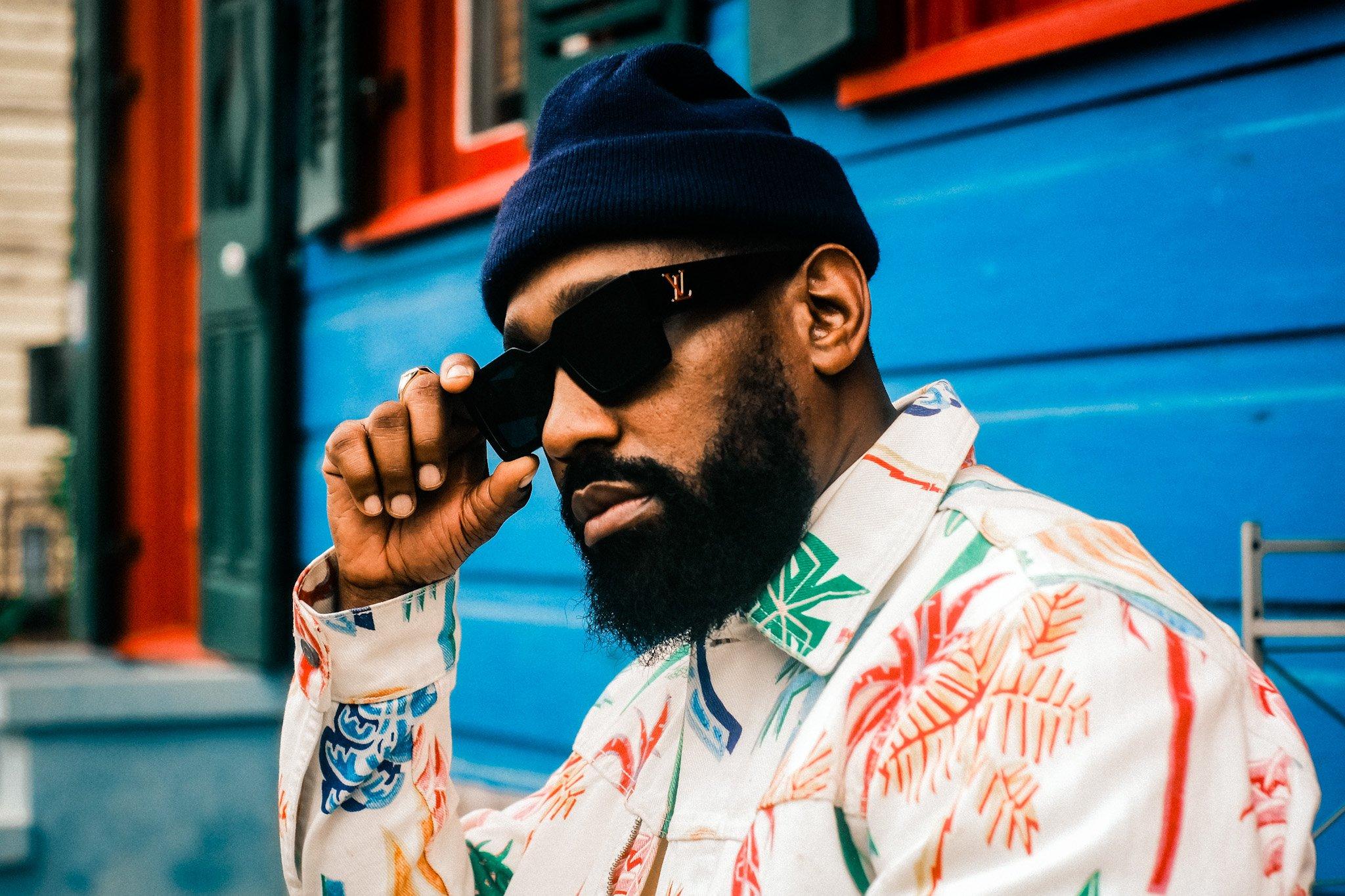
Photo: Patrick Melon
interview
On 'Cape Town To Cairo,' PJ Morton Connects New Orleans To The Motherland — One Day At A Time
Maroon 5 keyboardist PJ Morton details creating his new album in an intuitive and freewheeling manner while traveling up and down the African continent.
Maroon 5 keyboardist PJ Morton's guest-stuffed new album, Cape Town to Cairo, is built on an attention-grabbing conceit. He wrote and recorded it within a 30-day span, while journeying the African continent, visiting Johannesburg, Lagos, Accra, up to Cairo, back down to South Africa.
But a good story is just that, and the entire project — which features Fireboy DML, Mádé Kuti, the Soweto Spiritual Singers, and others — would collapse without quality songs. "The songs were the main thing," the five-time GRAMMY winner says. "It doesn't matter who I have on these songs if I don't have any good songs, so that was the priority."
It's a chicken-or-egg situation; the raw materials of Cape Town to Cairo are solid, but the guests helped them truly pop. Of Nigerian native Fireboy DML, who Morton worked with in his home country: "I had a bit of my song 'Count on Me' already, and he sat there and wrote that in 20 minutes," he says, with awe still palpable in his voice.
Elsewhere, Morton hails South African trumpeter and composer Ndabo Zulu's sense of instrumental space on "All the Dreamers" (which also features singer/songwriter Aṣa), and on the highlife "Who You Are," Mádé Kuti's channeling of his grandfather Fela Kuti's essence.
What was Morton's primary takeaway from the experience? Most of us abstractly understand how much Africa influenced American music; it's another ballgame altogether to witness it firsthand — as this native New Orleanian did.
"When I'm in Lagos, Nigeria, and I'm seeing the horn players play, I'm like, Man, this feels like home," Morton enthuses. "I'm in Ghana, and I hear highlife, I'm like, This feels like a second line or something. And then, I eat jollof rice, and I'm like, Man, this is jambalaya. This is their version."
Read on for the full interview about Cape Town to Cairo, and what Maroon 5's working on in 2024.
This interview has been edited for clarity.
When our CEO, Harvey Mason jr., traveled Africa, he called the experience "mind-bending," "game-changing" and "eye-opening." What was your reaction?
Oh, man. That was constantly happening for me over and over. When someone says, "Welcome home," or I look at money and see a Black man on the money, I'm like, Man. This is a different place, and so much love.
But for me, it was all the connections I was making to my home. I mean, being from New Orleans, a lot of the food, the music, the way they dance in the streets, and the way they celebrate, it just was really a bunch of connections happening for me. I'd say it was a life-changing trip for me.
I totally hear that syncopation and swing in Maroon 5.
Yeah. This is a big statement, but ultimately all our music is African music. It's hard to unsee once you see that. Now, all I see and hear is Africa a lot of times. We've used those three chords and the truth forever. These banjos, these things were created in Africa.
I've been in Maroon 14 years, and I think a reason I connected with the guys is because we're influenced by the same things — even in different worlds that we didn't realize were the same things.
Can you talk about the process of making Cape Town to Cairo while on the road?
That's what was so crazy about this — I created the album in 30 days while in Africa from scratch.
So, there was no time to process and then put it together, which was also just fascinating — something I never do. I take my time. I'm intricate. I cross every T and dot every I, so this was an experiment in trusting my instincts and just trusting what I know that has gotten me this far in music.
That was a really interesting part — because I had to quickly process what I was feeling, or not even fully process, but allow my soul and my body to process it and just write whatever was coming out, and create whatever music that was happening in South Africa.
Sounds like a heavy readjustment of your usual thinking.
As soon as I stepped on the ground and the first day we were in the studio, everybody was kind of on edge because they didn't know what I was going to write. I didn't know what I was going to write, but three songs came immediately.
Three ideas came that very first day I was in the studio, and that kind of relaxed me a bit, but that was the process. It was feel where you are, go in the studio, write some melodies, create some music, come back a few days later, put lyrics to that, and then redo.
And so, we did from South Africa, we started in Cape Town, obviously to Cairo, but with Cape Town. Then we went to Johannesburg, and all in between this, I was doing shows. We were doing concerts. I was doing radio interviews, TV interviews. I really wanted to just engulf myself as fast as I could.
When we got to Lagos, we landed on Fela Kuti's birthday, who's the father of Afrobeat. And man, it was so inspiring for me. I went in the studio the next day in Lagos, and the same thing happened — three songs just like that, three ideas.
One thing that was also different from my process is, sequencing is so important to me, but I couldn't leave Africa without knowing that these songs worked together. So I had to kind of work through that process in a truncated period of time, but I'm so proud of what happened. It's just really listening to my instincts, and it is raw emotion, this album is.
Some of the songs, I didn't realize what I was talking about until after I listened to them, and it was like, oh, I thought I was talking about this, but I'm talking about this.
Such as?
"Please Be Good to Me," specifically, it was like, I thought it was like a sexy love song, vibe song, but I feel like I'm talking to Africa.
Like, Take me to another place. I don't need to be in control. I've promised all these people I'm going to write an album in 30 days. Continent, please be good to me. Just give it to me. I have bad writer's block sometimes, so I was hoping that didn't happen, and it worked out.
Fela Kuti… speaking of people who should be on money. But what's his significance to you, personally?
I just think the way he was a fighter, the way he was a band leader, I really pride myself on musicianship.
Again, being from New Orleans — Afro Orleans is the name of my new band that we're going out with in the summer, and it's the horns, it's the percussion and all of that. So it is in that spirit of Fela. Also, his grandson, Mádé Kuti, is on one of the songs, "Who You Are."
He's the first person that made me pay attention to African music in general. My gateway was Fela. And so, to connect it this way, and to finally be in Lagos where he did it — to be at the shrine — was just special.
You made Cape Town to Cairo in such an intuitive and freewheeling manner. How did you ensure an album came out the other end, and not a bunch of outtakes or something?
It was trial and error, man, because initially I was trying to do so much stuff that I was like, Wait, I lost my voice. You know what I'm saying? I was just trying to do too much, and I was like, OK, let's kind of refocus and keep the main thing. So, I had to cancel some interviews; I had to cancel some things and really focus on the main things.
For me, it was trusting those ideas, the things that felt good. What happens in the studio with me is, sometimes I'll have a good idea, but I'm like, well, I can beat that. Let me try to beat it, and then I'll try to beat it. Sometimes, that first one was the one that was supposed to happen, but technically I'm beating it.
But am I beating it? I don't know, because maybe it wanted to come out in that pure form, and not have me get in the way with all my knowledge and years of [experience].
So I started to really trust that. I really just was like, OK, first idea, let's go. This first melody, that's what came out. Let's go with that. Then, I would write lyrics to my mumble track of the melody that I felt right, that moved me immediately. Thankfully, I've been writing songs for a long time, and we got to it, man.
But you're right — it wasn't just about writing songs in 30 days. It's about writing a complete album that I thought was good in 30 days, which is a completely different thing. But I just locked in, man, and I'm still kind of tripping that it happened this way, but I can literally place every song and remember where I was because it's such a short period of time.
I can't wait to fully see the footage of me creating from scratch. We're working on the documentary now, but I've never seen myself make something from nothing [like] this. So, I'm excited to see the inception to the full thing.
What's Maroon 5 up to?
We just did Questlove's podcast and talked about it a little bit, but we're definitely working on a record. Adam's been on fire writing lately, and we just finished the residency in Vegas days ago. We'll be back in Vegas in September, at Park MGM.
But it's going great, man. The music is coming out really cool. I joined at a unique time, which is after Hands All Over and before "Moves Like Jagger" and all of that stuff. It was a transition when Adam started to bring in co-work, and Hands All Over is the last time they didn't use co-writers.
So, now it's back to just him writing, and it's refreshing. I can't lie. It's exciting.
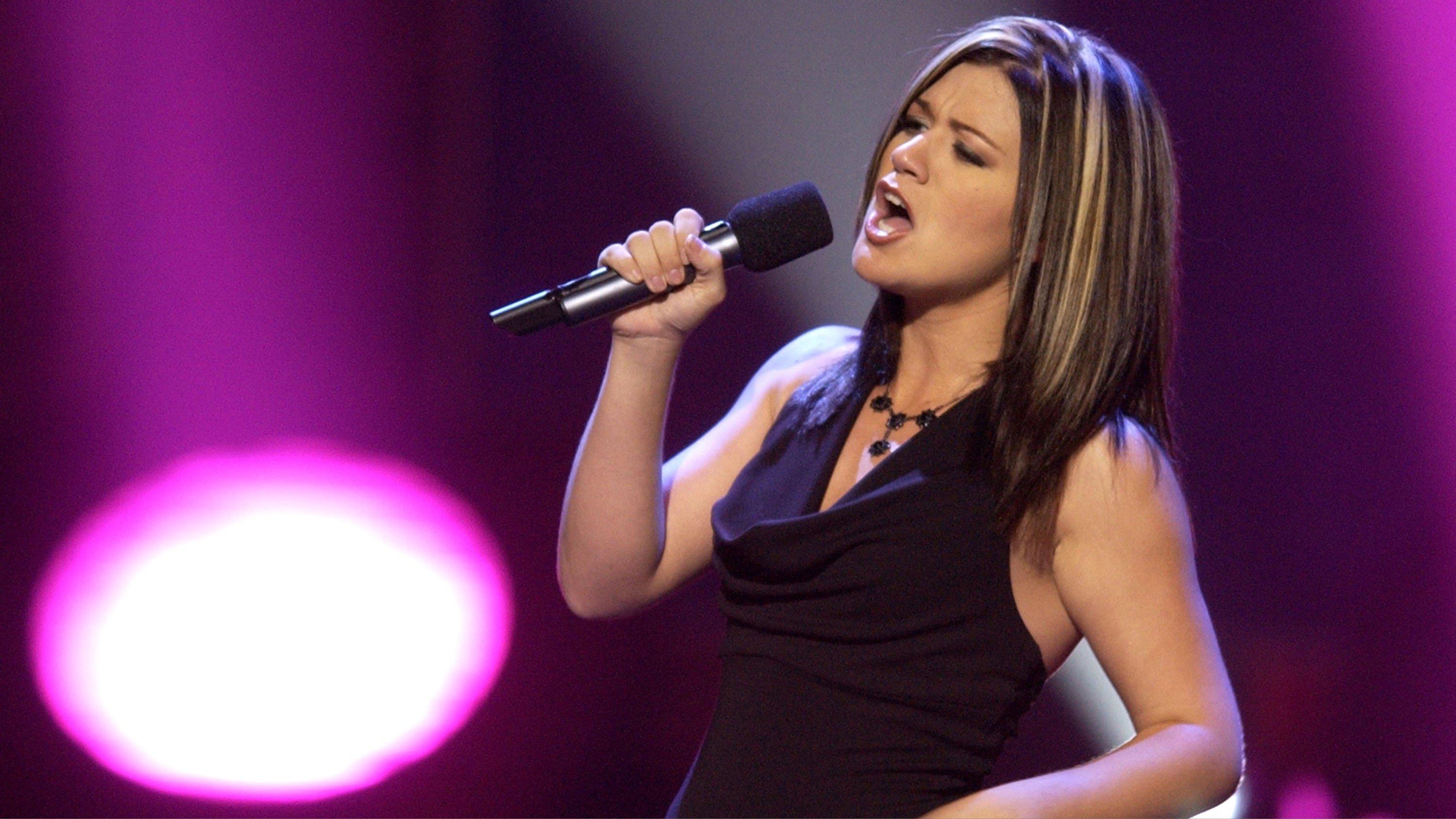
Photo: Steve Granitz / GettyImages
news
On This Day In Music: "American Idol" Premieres On Fox Network
For decades, "American Idol" has been instrumental in discovering some of music’s biggest names and pioneering the reality TV contest genre. As the show enters its 22nd run, here’s a look at how it has become an iconic household staple across the country.
For countless Americans, "American Idol" is intertwined with core memories as a show that had families eagerly glued to their TVs twice a week. It brought generations together, creating moments of both suspense and excitement that are still remembered today, as the show continues to run in its 22nd season.
Created by visionary entrepreneur Simon Fuller, "American Idol" premiered on June 11, 2002, as a fresh spin-off of the British program "Pop Idol." It revolutionized how Americans engaged with reality TV through its interactive, viewer-driven voting system, which encouraged audience participation in the success of their favorite contestants. The show also offered viewers a glimpse into contestants' candid backstories and personal journeys, anchoring emotional investment and skyrocketing the show's popularity.
The show's debut season featured a dynamic trio of judges: singer Paula Abdul, TV personality Simon Cowell, and producer Randy Jackson. Their contrasting personalities brewed a chemistry as captivating as the hopeful performances. Abdul’s warmth, Cowell's blunt wit, and Jackson’s humor added extra layers of entertainment, making the twice a week broadcasts a must-watch.
The first season of "American Idol" also unforgettably introduced the country to Kelly Clarkson. Since her debut — with a heart-tugging backstory about being the average girl-next-door with big dreams — Clarkson has gone on to tour the world, host her own TV talk show, and secured her spot as one of music’s most beloved talents.
"I had dreams since I was a little girl that I wanted to be on the GRAMMYs, or some award show and sing on there," Clarkson mentioned in her pre-audition interview. Flash forward 22 years, the pop singer has accumulated 17 GRAMMY nominations and three wins, propelled by a powerful vocal gift.
Other artists who launched their careers from the show's platform include Jordin Sparks, Carrie Underwood, Adam Lambert, and Jennifer Hudson, who each serve as testament to the show’s impact in music.
"American Idol" has not only opened our eyes to some of our favorite musicians, but it also has given us some of our favorite pop culture moments.
A video that frequently resurfaces on social media captures a memorable moment between Katy Perry and contestant Noah Davis, where they bond over the slang term 'wig'.
"No, it’s not your language. It’s just for us," Perry joked to her fellow judges, Lionel Richie and Luke Bryan, when they questioned the term’s meaning.
After two decades on air, "American Idol" has etched a lasting legacy in pop culture. It has paved the way for other reality TV music shows and created lasting memories for music fans along the way.
“The show transcends age, gender, ethnicity, everything,” Underwood told Billboard in 2005.
Explore More History-Making Moments In Music
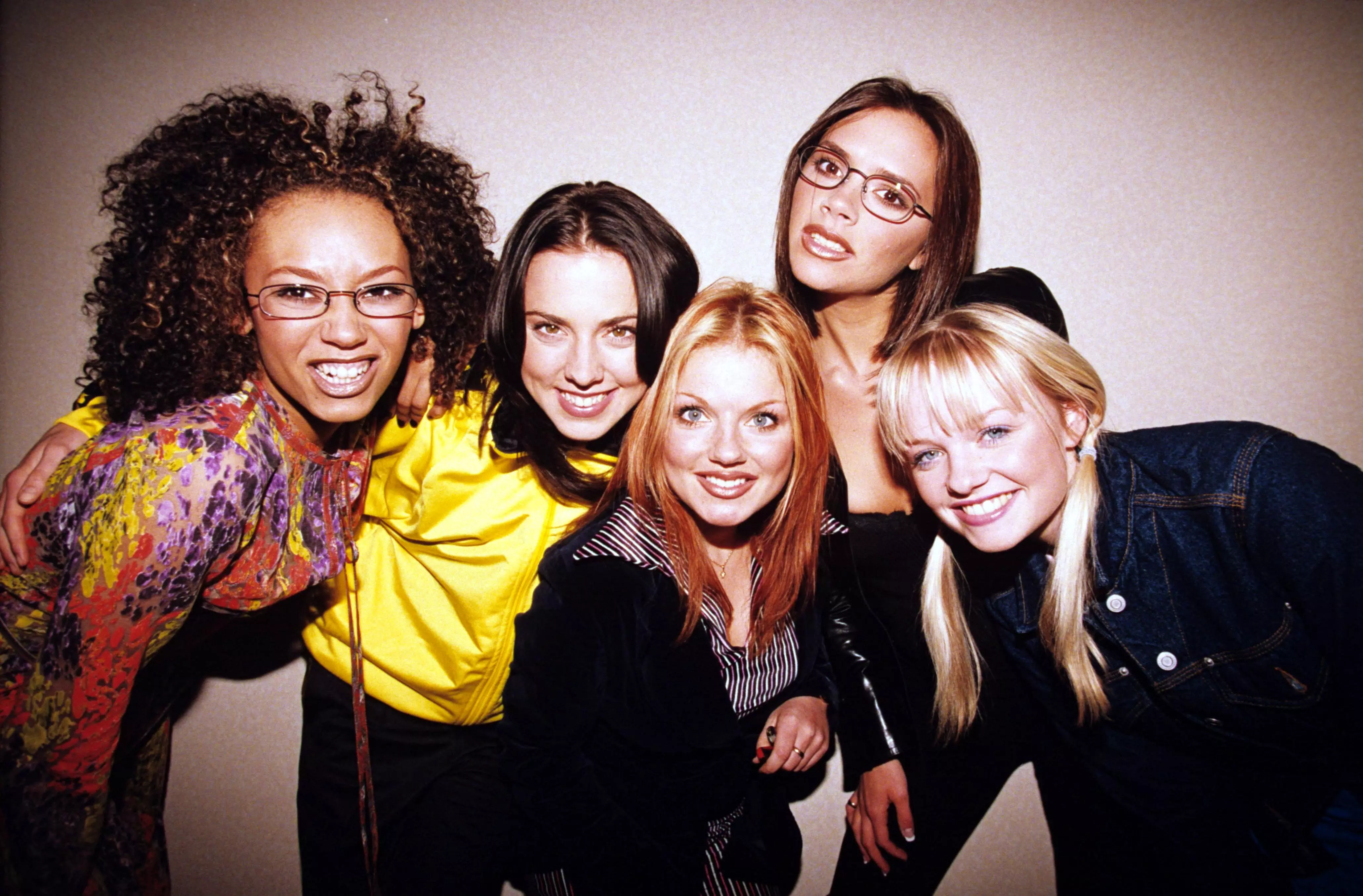
On This Day In Music: Spice Girls Release "Wannabe," Their Iconic Debut Single
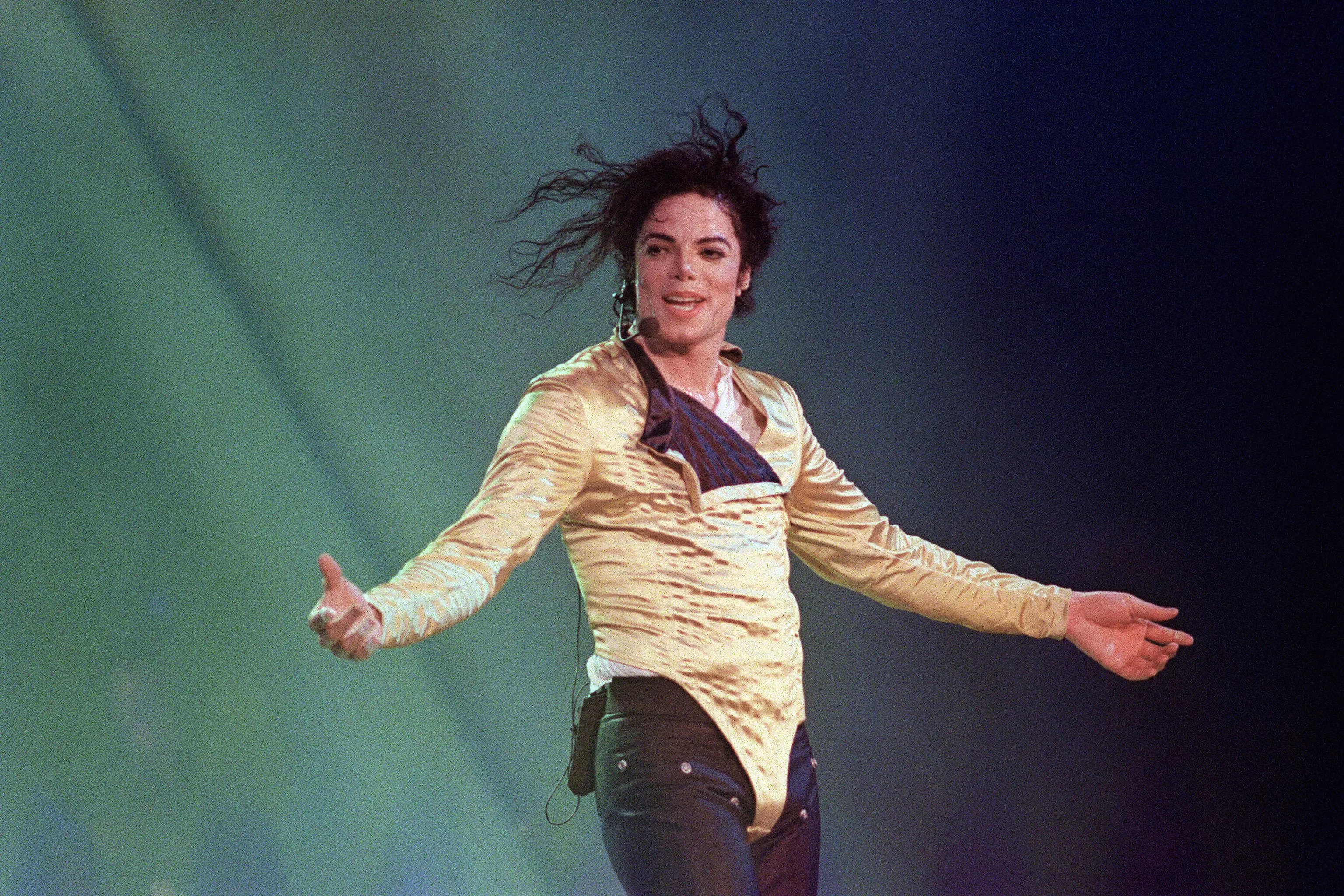
On This Day In Music: Michael Jackson Passes Away In Los Angeles At Age 50
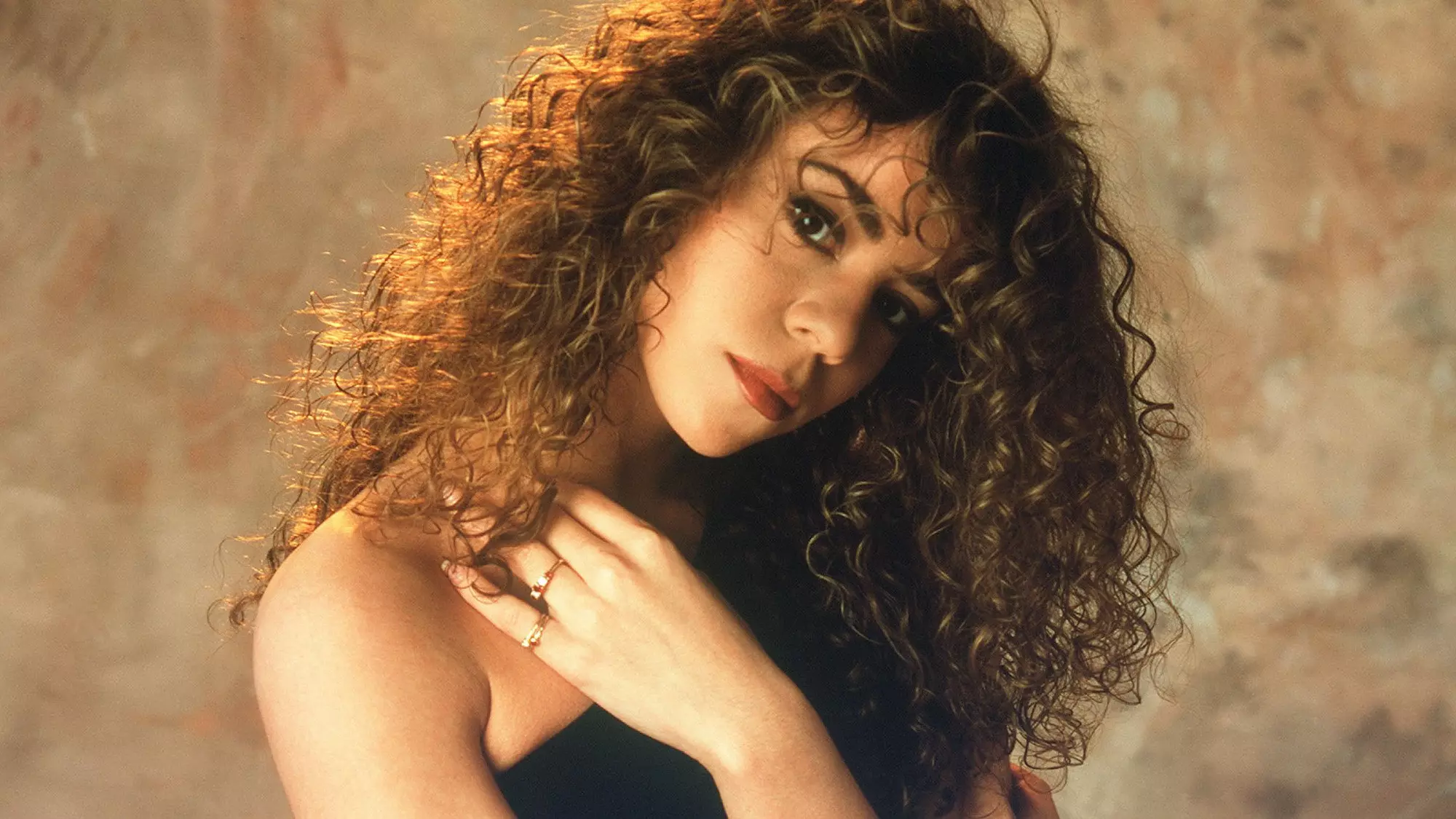
On This Day In Music: Mariah Carey Releases Her Self-Titled Debut Album
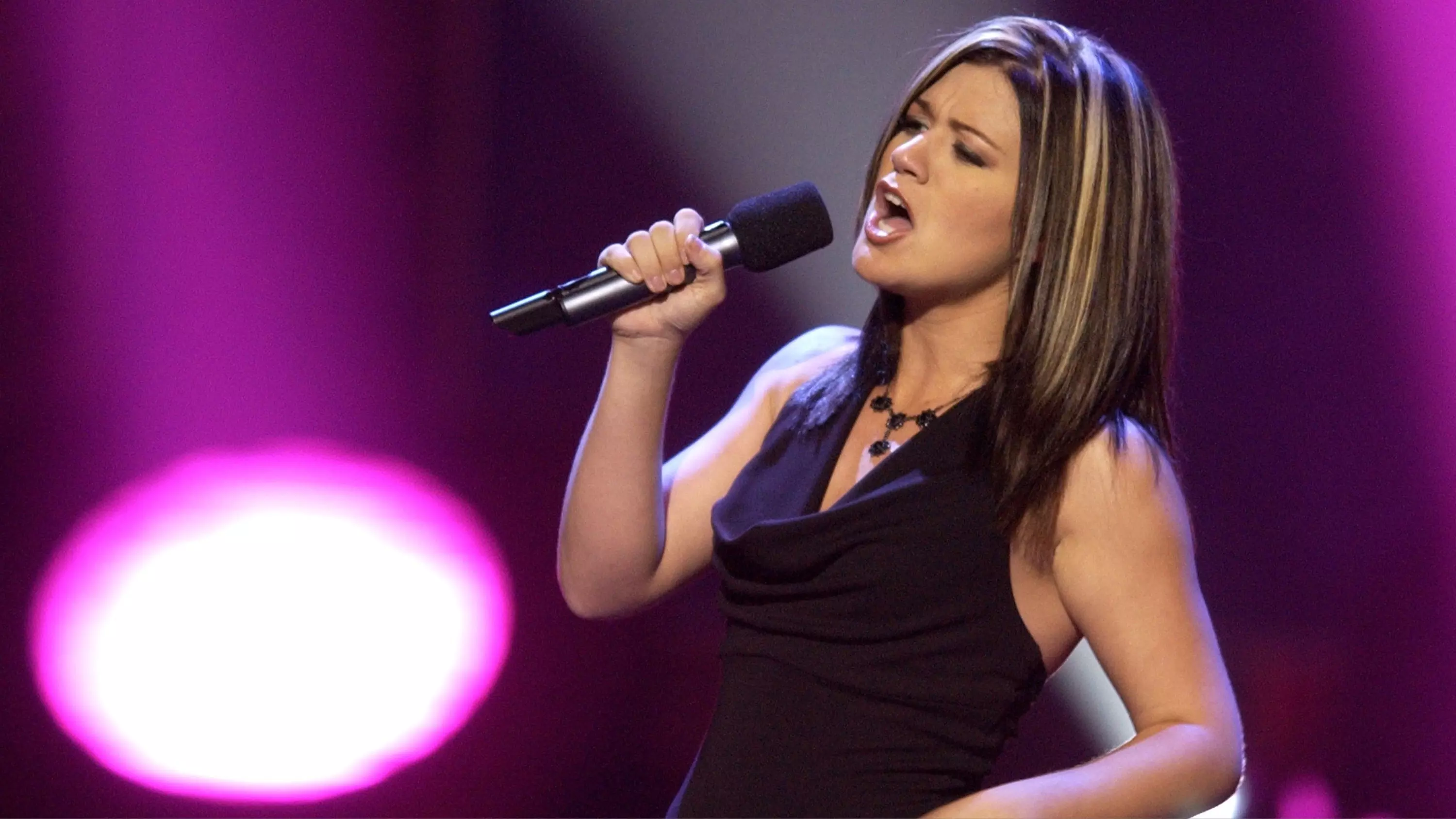
On This Day In Music: "American Idol" Premieres On Fox Network
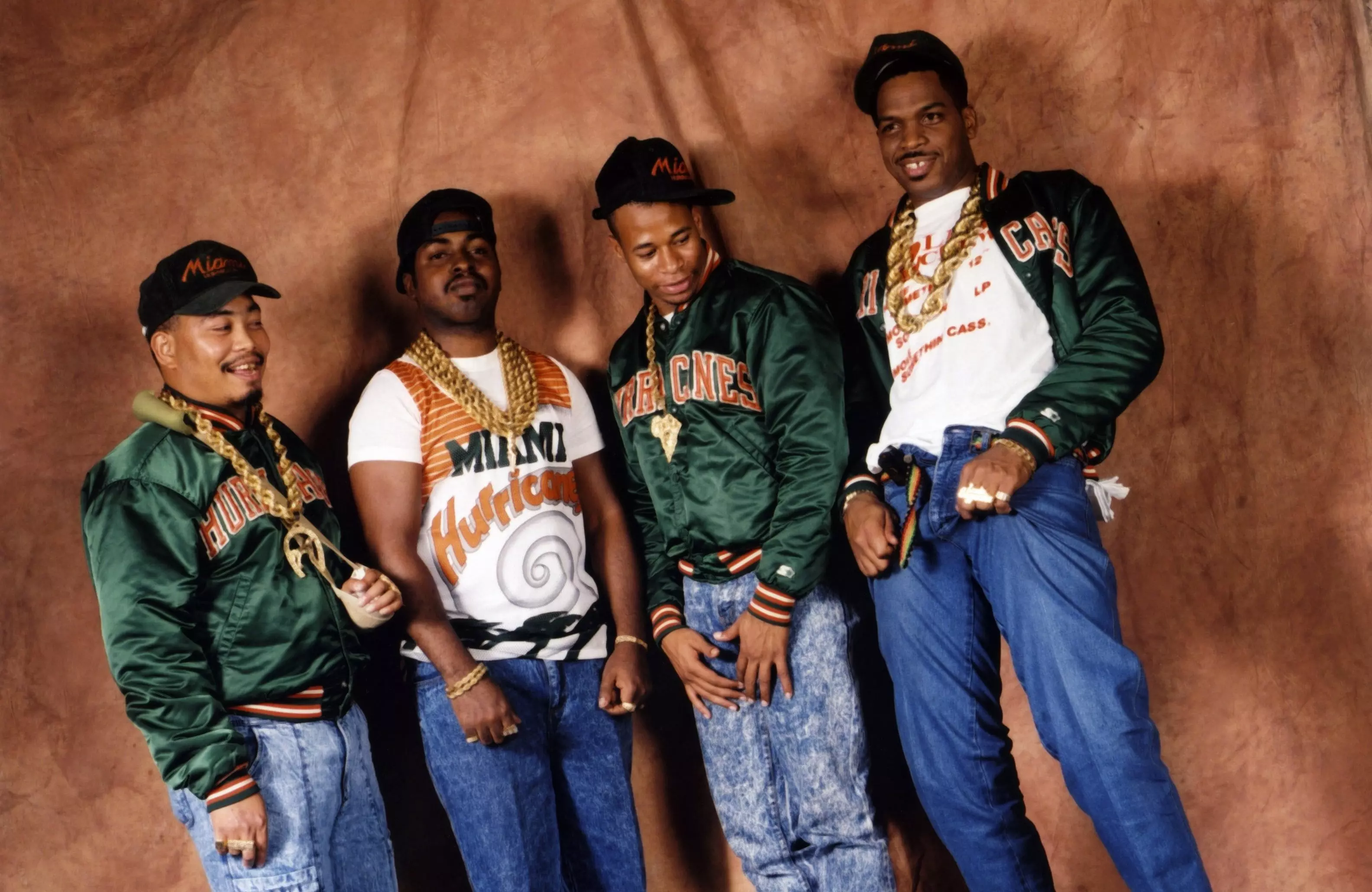
On This Day In Music: 2 Live Crew's 'As Nasty As They Wanna Be' Becomes First Album Declared Legally Obscene, Anticipates First Amendment Cases
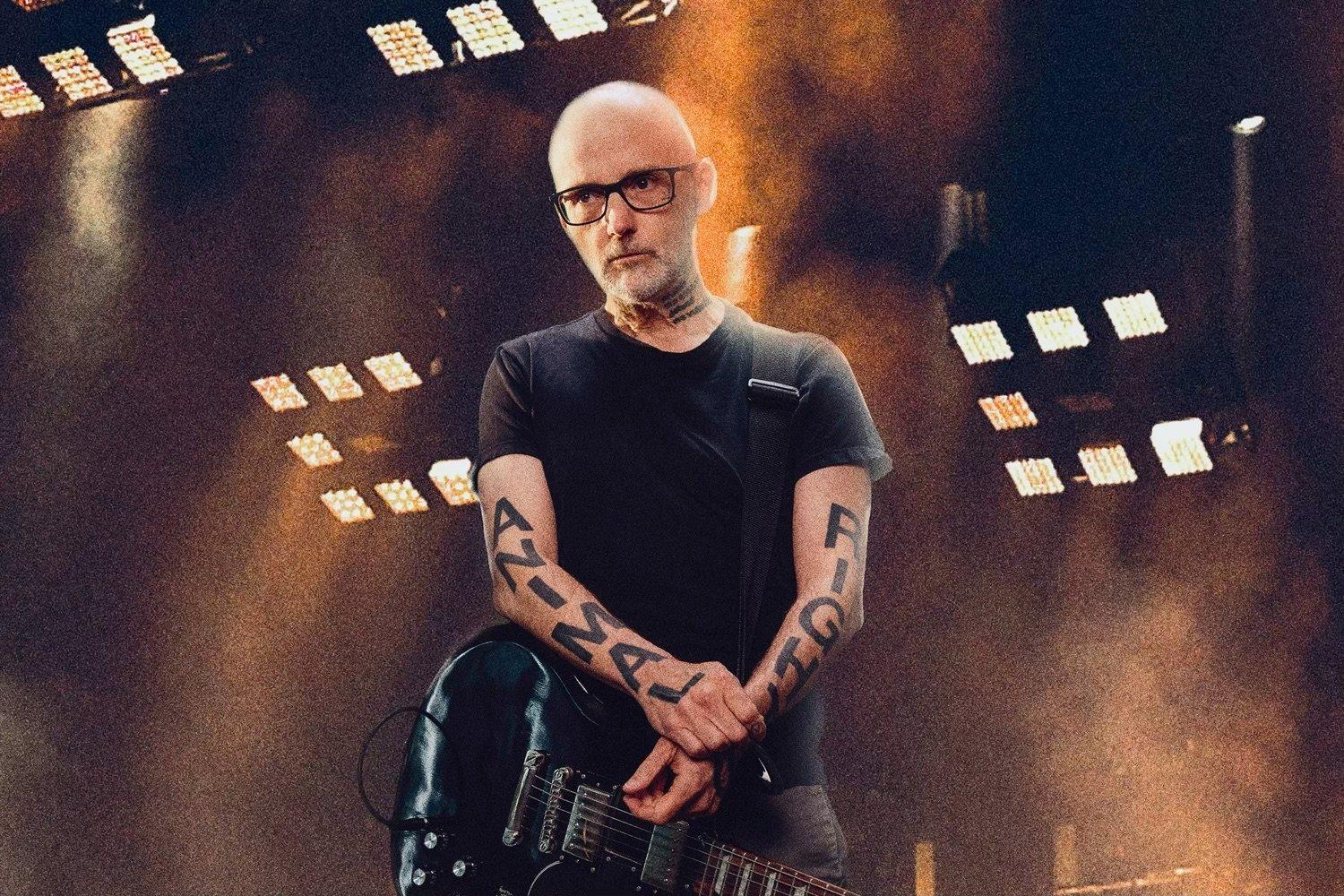
Photo: Mike Formanski
interview
"Let Yourself Be Idiosyncratic": Moby Talks New Album 'Always Centered At Night' & 25 Years Of 'Play'
"We're not writing for a pop audience, we don't need to dumb it down," Moby says of creating his new record. In an interview, the multiple-GRAMMY nominee reflects on his latest album and how it contrasts with his legendary release from 1999.
Moby’s past and present are converging in a serendipitous way. The multiple-GRAMMY nominee is celebrating the 25th anniversary of his seminal work, Play, the best-selling electronic dance music album of all time, and the release of his latest album, always centered at night.
Where Play was a solitary creation experience for Moby, always centered at night is wholly collaborative. Recognizable names on the album are Lady Blackbird on the blues-drenched "dark days" and serpentwithfeet on the emotive "on air." But always centered at night’s features are mainly lesser-known artists, such as the late Benjamin Zephaniah on the liquid jungle sounds of "where is your pride?" and Choklate on the slow grooves of "sweet moon."
Moby’s music proves to have staying power: His early ‘90s dance hits "Go" and "Next is the E" still rip up dancefloors; the songs on Play are met with instant emotional reactions from millennials who heard them growing up. Moby is even experiencing a resurgence of sorts with Gen Z. In 2023, Australian drum ‘n’ bass DJ/producer Luude and UK vocalist Issey Cross reimagined Moby’s classic "Porcelain" into "Oh My." Earlier this year, Moby released "You and Me" with Italian DJ/producer Anfisa Letyago.
Music is just one of Moby’s many creative ventures. He wrote and directed Punk Rock Vegan Movie as well as writing and starring in his homemade documentary, Moby Doc. The two films are produced by his production company, Little Walnut, which also makes music videos, shorts and the podcast "Moby Pod." Moby and co-host Lindsay Hicks have an eclectic array of guests, from actor Joe Manganiello to Ed Begley, Jr., Steve-O and Hunter Biden. The podcast interviews have led to "some of the most meaningful interpersonal experiences," Moby tells GRAMMY.com.
A upcoming episode of "Moby Pod" dedicated to Play was taped live over two evenings at Los Angeles’ Masonic Lodge at Hollywood Forever Cemetery. The episode focuses on Moby recounting his singular experiences around the unexpected success of that album — particularly considering the abject failure of his previous album, Animal Rights. The narrative was broken up by acoustic performances of songs from Play, as well as material from Always Centered at Night (which arrives June 14) with special guest Lady Blackbird. Prior to the taping, Moby spoke to GRAMMY.com about both albums.
'Always centered at night' started as a label imprint then became the title of your latest album. How did that happen?
I realized pretty quickly that I just wanted to make music and not necessarily worry about being a label boss. Why make more busy work for myself?
The first few songs were this pandemic process of going to SoundCloud, Spotify, YouTube and asking people for recommendations to find voices that I wasn’t familiar with, and then figuring out how to get in touch with them. The vast majority of the time, they would take the music I sent them and write something phenomenal.
That's the most interesting part of working with singers you've never met: You don't know what you're going to get. My only guidance was: Let yourself be creative, let yourself be idiosyncratic, let the lyrics be poetic. We're not writing for a pop audience, we don't need to dumb it down. Although, apparently Lady Blackbird is one of Taylor Swift's favorite singers.
Guiding the collaborators away from pop music is an unusual directive, although perhaps not for you?
What is both sad and interesting is pop has come to dominate the musical landscape to such an extent that it seems a lot of musicians don't know they're allowed to do anything else. Some younger people have grown up with nothing but pop music. Danaé Wellington, who sings "Wild Flame," her first pass of lyrics were pop. I went back to her and said, "Please be yourself, be poetic." And she said, "Well, that’s interesting because I’m the poet laureate of Manchester." So getting her to disregard pop lyrics and write something much more personal and idiosyncratic was actually easy and really special.
You certainly weren’t going in the pop direction when making 'Play,' but it ended up being an extremely popular album. Did you have a feeling it was going to blow up the way it did?
I have a funny story. I had a date in January 1999 in New York. We went out drinking and I had just gotten back the mastered version of Play. We're back at my apartment, and before our date became "grown up," we listened to the record from start to finish. She actually liked it. And I thought, Huh, that's interesting. I didn't think anyone was going to like this record.
You didn’t feel anything different during the making of 'Play?'
I knew to the core of my being that Play was going to be a complete, abject failure. There was no doubt in my mind whatsoever. It was going to be my last record and it was going to fail. That was the time of people going into studios and spending half a million dollars. It was Backstreet Boys and Limp Bizkit and NSYNC; big major label records that were flawlessly produced. Play was made literally in my bedroom.
I slept under the stairs like Harry Potter in my loft on Mott Street. I had one bedroom and that's where I made the record on the cheapest of cheap equipment held up literally on milk crates. Two of the songs were recorded to cassette, that's how cheap the record was. It was this weird record made by a has-been, a footnote from the early rave days. There was no world where I thought it was going to be even slightly successful. Daniel Miller from Mute said — and I remember this very clearly — "I think this record might sell over 50,000 copies." And I said, "That’s kind of you to say but let's admit that this is going to be a failure. Thank you for releasing my last record."
Was your approach in making 'Play' different from other albums?
The record I had made before Play, Animal Rights, was this weird, noisy metal punk industrial record that almost everybody hated. I remember this moment so vividly: I was playing Glastonbury in 1998 and it was one of those miserable Glastonbury years. When it's good, it's paradise; it's really special. But the first time I played, it was disgusting, truly. A foot and a half of mud everywhere, incessant rain and cold. I was telling my manager that I wanted to make another punk rock metal record. And he said the most gentle thing, "I know you enjoy making punk rock and metal. People really enjoy when you make electronic music."
The way he said it, he wasn't saying, "You would help your career by making electronic music." He simply said, "People enjoy it." If I had been my manager, I would have said, "You're a f—ing idiot. Everyone hated that record. What sort of mental illness and masochism is compelling you to do it again?" Like Freud said, the definition of mental illness is doing the same thing and expecting different results. But his response was very emotional and gentle and sweet, and that got through to me. I had this moment where I realized, I can make music that potentially people will enjoy that will make them happy. Why not pursue that?
That was what made me not spend my time in ‘98 making an album inspired by Sepultura and Pantera and instead make something more melodic and electronic.
After years of swearing off touring, what’s making you hit stages this summer?
I love playing live music. If you asked me to come over and play Neil Young songs in your backyard, I would say yes happily, in a second. But going on tour, the hotels and airports and everything, I really dislike it.
My manager tricked me. He found strategically the only way to get me to go on tour was to give the money to animal rights charities. My philanthropic Achilles heel. The only thing that would get me to go on tour. It's a brief tour of Europe, pretty big venues, which is interesting for an old guy, but when the tour ends, I will have less money than when the tour begins.
Your DJ sets are great fun. Would you consider doing DJ dates locally?
Every now and then I’ll do something. But there’s two problems. As I've become very old and very sober, I go to sleep at 9 p.m. This young guy I was helping who was newly sober, he's a DJ. He was doing a DJ set in L.A. and he said, "You should come down. There's this cool underground scene." I said, "Great! What time are you playing?" And he said "I’m going on at 1 a.m." By that point I've been asleep for almost five hours.
I got invited to a dinner party recently that started at 8 p.m. and I was like, "What are you on? Cocaine in Ibiza? You're having dinner at 8 p.m. What craziness is that? That’s when you're putting on your soft clothes and watching a '30 Rock' rerun before bed. That's not going out time." And the other thing is, unfortunately, like a lot of middle aged or elderly musicians, I have a little bit of tinnitus so I have to be very cautious around loud music.
Are you going to write a third memoir at any point?
Only when I figure out something to write. It's definitely not going to be anecdotes about sobriety because my anecdotes are: woke up at 5 a.m., had a smoothie, read The New York Times, lamented the fact that people are voting for Trump, went for a hike, worked on music, played with Bagel the dog, worked on music some more went to sleep, good night. It would be so repetitive and boring.
It has to be something about lived experience and wisdom. But I don't know if I've necessarily gotten to the point where I have good enough lived experience and wisdom to share with anyone. Maybe if I get to that point, I'll probably be wrong, but nonetheless, that would warrant maybe writing another book.
Machinedrum's New Album '3FOR82' Taps Into The Spirit Of His Younger Years
